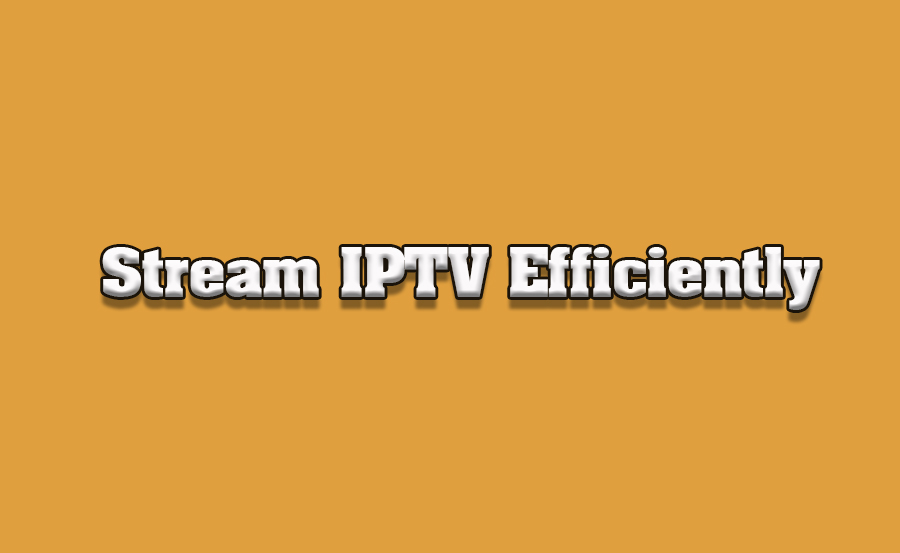Streaming IPTV (Internet Protocol Television) has become a preferred way to enjoy live TV, movies, and on-demand content. While IPTV offers flexibility and a wide range of entertainment options, it can also consume significant amounts of data. For those with limited data plans or slower internet speeds, managing data usage becomes essential. This article explores practical and creative ways to reduce data usage while streaming IPTV without compromising on quality or performance.
Buy 1 Year IPTV and Enjoy Unlimited Content
1. Understand How IPTV Consumes Data
Streaming IPTV involves transferring video and audio data over the internet, which can quickly add up based on the following factors:
- Streaming Quality: Higher resolutions like HD (1080p) and 4K consume significantly more data than SD (480p).
- Streaming Duration: The longer you stream, the more data you consume.
- Content Type: Live TV, on-demand movies, or sports broadcasts may have varying data demands based on their encoding.
By understanding these factors, you can better manage your data usage.
2. Choose the Right Streaming Resolution
Adjusting the streaming resolution is one of the most effective ways to reduce data usage:
- Standard Definition (SD): Requires approximately 1-2 GB per hour.
- High Definition (HD): Uses around 3-5 GB per hour.
- 4K Ultra HD: Can consume 7-10 GB per hour. Switch to SD for casual viewing or when using smaller screens like smartphones or tablets.
3. Enable Adaptive Streaming
Most IPTV apps offer an adaptive streaming feature, which automatically adjusts the video quality based on your internet speed. This not only minimizes buffering but also ensures you’re not using excessive data when your connection speed fluctuates.
4. Download Content for Offline Viewing
Many IPTV services provide an option to download content for offline viewing:
- Reduce Data Usage: Download content once over Wi-Fi to avoid streaming it multiple times.
- Save Bandwidth: Watch downloaded content without impacting your internet bandwidth.
5. Limit Background Data Consumption
Background apps and processes can consume data while streaming IPTV. To minimize unnecessary data usage:
- Close Other Apps: Ensure no other apps are running in the background while streaming.
- Disable Automatic Updates: Pause updates for apps or operating systems during streaming.
- Restrict Background Data: Use your device settings to limit data usage for non-essential apps.
6. Use Data-Saving Modes
Some IPTV apps and devices come with built-in data-saving modes:
- Lower Bitrate Streaming: Reduce the amount of data transmitted per second without significantly affecting video quality.
- Compressed Video Files: Opt for compressed video options that maintain acceptable quality while using less data.
How to Integrate IPTV into a Home Theater System
7. Optimize Your Network Setup
A well-optimized network setup can reduce data wastage:
- Use a Wired Connection: Ethernet connections provide stable speeds, reducing the need for repeated buffering and data reloading.
- Upgrade Your Router: Modern routers with better bandwidth management can optimize streaming performance.
- Set Data Limits: Many routers allow you to set data usage caps for specific devices.
8. Stream During Off-Peak Hours
Streaming during peak internet usage times can result in slower speeds and higher data usage due to repeated buffering. Plan your streaming during off-peak hours to experience smoother playback and lower data consumption.
9. Monitor and Manage Data Usage
Keep track of your data usage to identify patterns and make adjustments:
- Device Settings: Use built-in data trackers on smartphones and smart TVs to monitor usage.
- Third-Party Apps: Install apps like GlassWire or My Data Manager for detailed reports on data consumption.
10. Use a VPN with Data Compression
A Virtual Private Network (VPN) with a data compression feature can help reduce the amount of data used while streaming IPTV. Look for VPNs optimized for streaming to avoid buffering while maintaining privacy and security.
11. Avoid Streaming on Mobile Data
Mobile data is often limited and expensive compared to home internet:
- Switch to Wi-Fi: Use Wi-Fi networks whenever possible to save on mobile data.
- Enable Wi-Fi Only Mode: Many IPTV apps have an option to restrict streaming to Wi-Fi networks.
12. Adjust IPTV App Settings
Explore your IPTV app settings for additional data-saving options:
- Disable Autoplay: Prevent the next episode or video from automatically playing.
- Turn Off Previews: Reduce data usage by disabling previews or trailers.
- Shorten Buffer Duration: Limit the buffer size to avoid preloading excessive data.
13. Plan Viewing Habits
Small changes in viewing habits can make a big difference in data consumption:
- Schedule Streaming Sessions: Group your streaming into dedicated sessions instead of spreading it throughout the day.
- Avoid Replays: Bookmark or download content to avoid streaming the same video multiple times.
Conclusion
Reducing data usage while streaming IPTV doesn’t mean compromising on your viewing experience. By choosing the right resolution, enabling data-saving features, and optimizing your network setup, you can enjoy high-quality IPTV streaming while staying within your data limits. These practical tips not only help manage your data usage but also enhance the overall efficiency of your IPTV experience.
IPTV Protocols: M3U, RTSP, and HTTP

